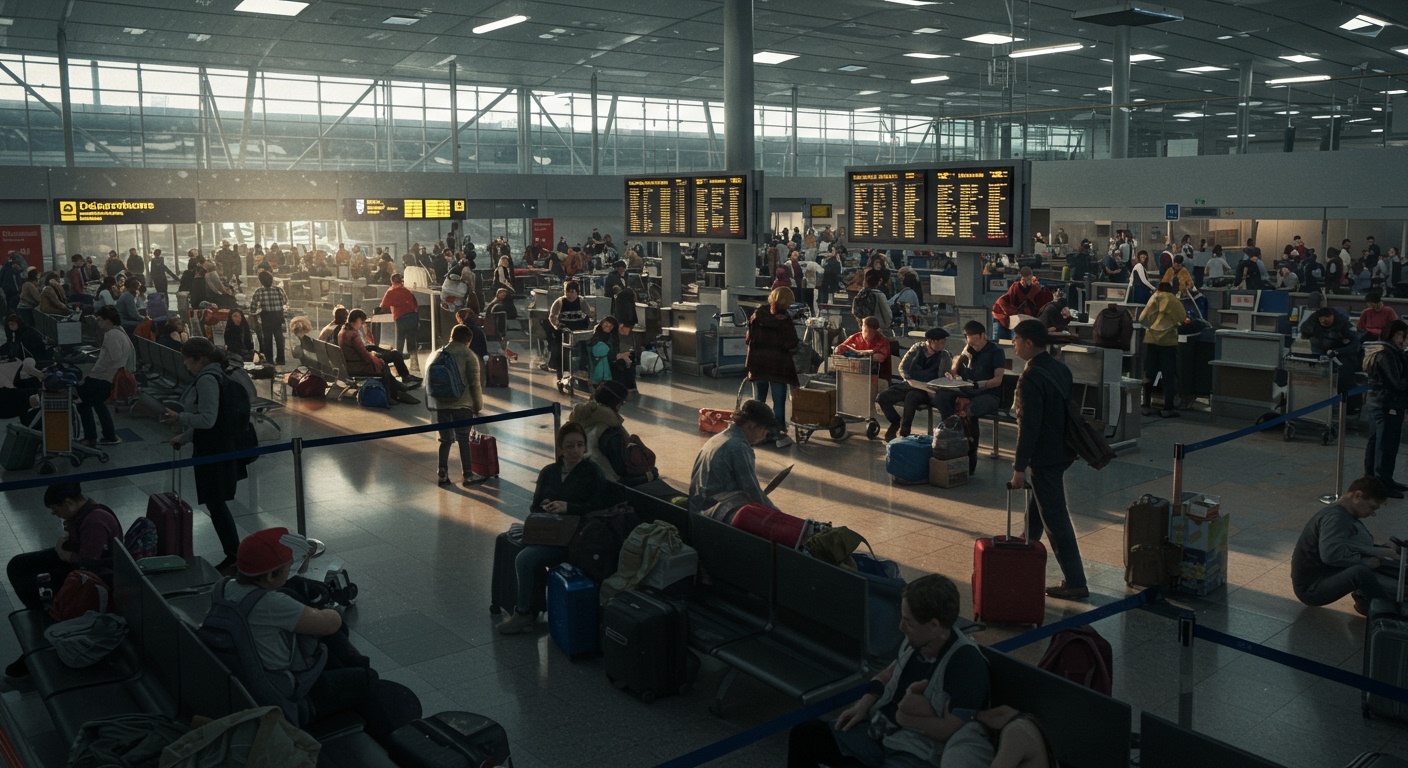Air travel across major European hubs experienced significant disruption on Sunday, June 29, 2025, as approximately 400 flights faced delays or cancellations. The widespread issues impacted operations at London Heathrow, Amsterdam Schiphol, Frankfurt International, and Athens International airports, affecting passengers on numerous leading carriers including Air France, Lufthansa, British Airways, Emirates, and United.
The disruptions were attributed to a confluence of factors, primarily encompassing staff shortages, demanding tight aircraft turnaround times, and infrastructure strain exacerbated by the surge in travelers during the peak summer travel demand period. This operational pressure resulted in extended passenger waits and contributed to chaotic conditions within terminals and airside.
Scope of the Disruptions
Across the four major airports examined – London Heathrow, Amsterdam Schiphol, Frankfurt International, and Athens International – the combined impact amounted to a total of 384 delays and 12 cancellations. This brings the total number of disrupted flights at these key gateways on Sunday, June 29, 2025, to 396.
The scale of the disruption underscores the persistent challenges facing the global aviation sector as it navigates high demand while contending with operational constraints that have emerged or been highlighted in the post-pandemic environment.
Focus on London Heathrow
London Heathrow, one of the world’s busiest international airports, was particularly affected. On the day in question, a total of 80 delays and 3 cancellations were recorded at the West London hub. These figures highlight the pressure on its complex operations, which handle a high volume of flights and passengers daily.
Airport operations teams at Heathrow cited specific issues contributing to the delays. Leading causes included runway congestion and short staffing in airside logistics. These factors are crucial for the smooth flow of aircraft movements on the ground and timely departures.
Impact on Key Airlines at Heathrow
The disruption at London Heathrow affected a wide array of airlines operating from the airport. British Airways, the largest carrier by volume at Heathrow, experienced a significant portion of the delays, recording 35 delays and 1 cancellation on its schedule.
Other major international airlines operating at Heathrow also faced notable disruptions. United Airlines saw 2 delays and 2 cancellations. American Airlines reported 6 delays. Air India also had 6 delays. Delta Air Lines recorded 2 delays, while Virgin Atlantic experienced 3 delays. European carriers like Lufthansa faced 3 delays, and TAP Air Portugal had 2 delays. Low-cost carrier Vueling also recorded 3 delays.
Furthermore, single flight delays were noted for several other international airlines, including Singapore Airlines, Qantas, JetBlue, Kenya Airways, EgyptAir, and El Al. The broad impact across such a diverse group of carriers underscores the systemic nature of the operational challenges faced on this particular Sunday.
Underlying Causes and Passenger Experience
The operational challenges cited across the affected airports paint a picture of an industry struggling to keep pace with resurgent travel demand. Staff shortages, particularly in critical roles like airside logistics and potentially air traffic control or ground handling, directly impact the ability to manage high traffic volumes efficiently.
Tight aircraft turnaround times – the critical period between a plane landing and being ready for its next departure – leave little buffer for unexpected issues. Any minor delay, from baggage handling to refueling or passenger boarding, can cascade throughout the schedule, contributing to widespread disruption.
Combined with infrastructure strain at major hubs that were designed for different operational realities or traffic levels, these factors create a fragile system vulnerable to breakdown during peak periods like the summer travel season.
The consequence for travelers was clear: long waits at gates, check-in, and security, coupled with general chaotic conditions that tested passenger patience. The delays particularly affected transatlantic flights to the U.S. and Canada, indicating challenges in managing the complex logistics of long-haul operations and the required infrastructure for such flights.
As the summer season progresses, the aviation industry faces continued scrutiny regarding its resilience and ability to handle the volume of travelers, suggesting that operational stability remains a key challenge for airports and airlines alike.





